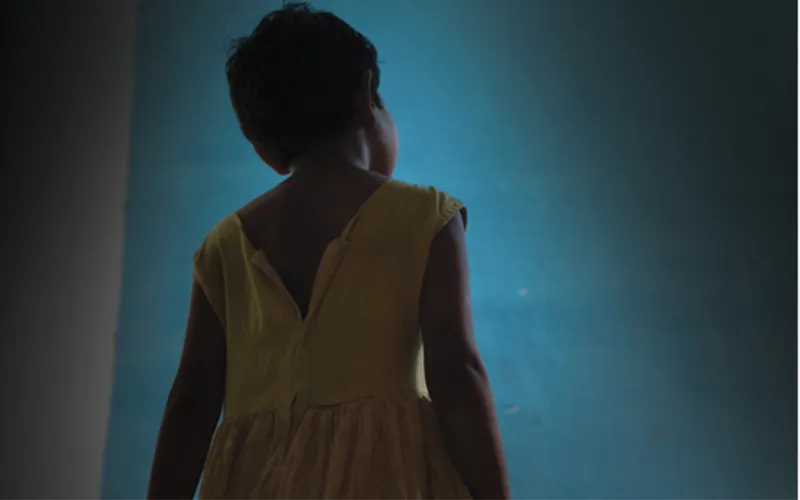How to help children cope with COVID-19 driven anxiety
From establishing routines to allowing children to voice their concerns, the right psychosocial support system is crucial.
The COVID-19 pandemic has caused unprecedented loss across the world. In India alone, over 3.32 lakh people have died from the virus.
In March 2020, the Government of India announced the complete closure of schools to curb the spread of the disease. Children were isolated at home, with a complete shift in their lives and routines.
Many had to adapt overnight to new ways of learning, while others with no access to online resources to connect with their peers or with their schools, were completely cut off. At home, too, they were cut off from their friends and were isolated. Moreover, unfettered access to news and social media further exacerbated the situation with an unprecedented exposure to incidents of disturbing images and death, with many losing close family members.

Dr P. Carel Joseph, Director, Health World Vision India
According to Dr P Carel Joseph, Director - Health, World Vision India — an organisation working with underprivileged children, says, “It is important to filter any news the children hear. Ensure they only access what is essential for them. However, it is important to assure children with facts, especially about COVID-19.”
Dr Joseph was part of a team that recently completed training at NIMHANS on psychosocial care.
He adds that parents and caregivers are also dealing with unprecedented circumstances. With children having to adapt to new routines, many need time to adjust. Parents need to help their children slowly build new routines.
“While it’s okay to have flexible timings for activities, sleep and meal times must be fixed to maintain a routine. Separation from friends might be a difficult thing, so arrange interactions through calls. Spend quality time with them by playing games or even involving them in housework,” he explains.
Positive reinforcement
According to UNICEF and Childline, children are keen observers and are sensitive to their surroundings. They tend to internalise and react to the stress their parents and caregivers are feeling.
With adults feeling increased stress due to COVID-19, many parents are hampered in their capacity to remain engaged with their children. However, with children isolated at home, it is very important to maintain a sense of optimism and hope.
“Avoid phrases like ‘always’ and ‘never,’ and encourage all activities that promote happy emotions. Information about the pandemic should be fact-checked and authentic before discussing with the child. To enable that, access to negative news should be restricted. All pandemic-related discussions should be limited to under 30 minutes per day to prevent overloading the child with information,” Dr Joseph says, adding that children need to be taught about the dos and don’ts of the pandemic, rather than statistics about the pandemic.
He also suggests gamifying hygiene rituals for smaller children.
“Allow the child to build activities around the guidelines of the pandemic, like make up a song about hand washing or a drawing about social distancing. Discussions about the pandemic should be limited in front of the child,” he says.
According to the specialist, it is important for the parents and caregivers to also look after their own mental health and wellbeing.
“Try and take an hour or two for yourself away from work and children. Do something that you enjoy at this time. Ensure you get proper sleep, eat your meals, and get enough rest to prevent burnout. It’s also important to stay connected with your support system and have people who empathise with you,” he explains.

Many children have lost one or both parents to the COVID-19 virus.
Credit: WorldVision India website
Coping with loss
One of the biggest tragedies of the COVID-19 pandemic has been the loss of life and livelihoods.
According to a November 2020 report by UNICEF, the global socio-economic crisis caused by the pandemic could push 142 million more children into monetary poor households in developing countries.
Globally, the total number of children living in poor households could reach just over 725 million in the absence of any mitigating policies.
Many families have lost their primary breadwinner, which is either one or both parents. Counsellors advise surviving adults to allow children to express their grief and comfort them.
“Do not restrict them from talking about the person they lost or from having breakdowns. However, ensure they eat and sleep properly, and their routine is maintained,” says Dr Joseph.
“In case the child has lost both parents, new caregivers should not try to take over the role of the mother or father; this may build resistance, and the child will become defensive. Make sure your role is distinct and do not be overbearing,” he says.
The child should be given space and feel reassured that they are not a burden, he adds.
Speaking about how World Vision India is supporting children, he says, “As an immediate response, World Vision India, in collaboration with Sphere India, is giving telepsychiatry and tele counselling services to the children in our target communities. We are also offering psychosocial support to the most vulnerable children, including orphaned and semi orphaned children due to COVID-19, children with disability, and street children,” he says.
Edited by Suman Singh







